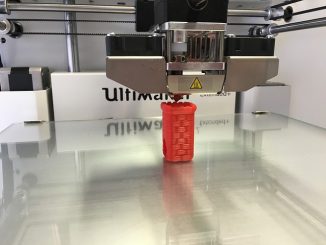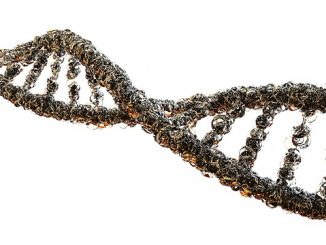
We hate bacteria, don’t we? And we hate them even more now that they have evolved into superbugs that we can’t defend ourselves against. But, that isn’t stopping us from studying them further so we can discover how to fight them off better, and for a change, find out what they can do for us, instead of against us.
That’s exactly what Dr. William Bentley and his colleagues at the University of Maryland have been working on. They’re using technology to control bacterial cells. Specifically, they’ve figured out a way to electronically turn bacterial cells ‘on’ and ‘off’, the main objective of which is to eventually empower them to let bacteria do what they want bacteria to do.
For their research, the team turned to ‘redox molecules’ — a class of molecules that have the ability to transport electrons, similar with how a wire can transport electric current. Unlike a wire, however, redox molecules need to undergo oxidation (losing electrons) or reduction (gaining electrons), before it can pass on electrons.
By using a microelectronic device, the researchers were able to oxidize and reduce the redox molecules depending on the voltage they applied. When positive charge is applied, the redox molecules turn to their oxidized (active) state. When a negative charge is applied, the redox molecules return to their reduced (inactive) state.
In one case, doing this allowed them to control whether bacteria synthesizes a specific protein or not. In another case, they were able to make bacteria move forward by turning the bacterial cells ‘on’. They were also able to signal a collection of cells to behave the same way, even if these cells normally behave differently.
According to Bentley, the procedure didn’t involve much genetic re-wiring. And in the case when the effect was weak, there was a way to amplify it, simply by adding another redox molecule. The best part is, the procedure — turning the cells on and off — can be done repeatedly without negatively affecting the cells.
Even at its early stage, the research — entitled “Electronic control of gene expression and cell behavior in Escherichia coli through redox signaling” and published in the journal Nature Communications — is already eliciting visions of unprecedented ways to monitor, diagnose and treat health conditions. Potential uses include electrical stimulation of bacteria, first to diagnose an infection or medical condition, then make medicine for it, and finally to actually be the ones to deliver the treatment to the corresponding cells.
And how will this be possible? The team imagines engineered bacteria being put inside ingestible pills that can collect data and create drugs within a person’s body.
In a far-off scenario, the technology might even be incorporated in today’s wearables or mobile devices so that from mere fitness trackers, the devices can be used as portable labs — producing and administering life-saving drugs. And all that from the nuisances we call bacteria.
Disclaimer: This page contains affiliate links. If you choose to make a purchase after clicking a link, we may receive a commission at no additional cost to you. Thank you for your support!




Leave a Reply